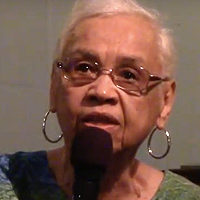PHILADELPHIA — Protesters rallied outside of the City Council here where the city’s $3.8 billion budget passed unanimously on May 21.
The Coalition for Essential Services organized the protest to bring public attention to the cuts in city services which include closing libraries on the weekends and cuts in library programs, cuts in after school programs and closing 30 pools.
The increased sales tax also angered the group. In order to close the budget gap City Council increased the sales tax from 7 percent to 8 percent for five years.
Change to the accounting rules for the city’s pension fund will also generate funds for the city. But the majority Republican State Legislature will have to OK the tax increase and changes in pension plan rules.
Mayor Michael Nutter had tried to increase property tax by 20 percent but a storm of protest forced him to withdraw that plan. Earlier Nutter tried to close 11 libraries, but Philadelphians organized and took it to court. A judge’s ruling prevented the closings.
“Low income families will suffer the most,” said protestor Sherrie Cohen, “they can’t afford to pay for summer camps or after school childcare and depend on city programs.”
Plus, she added, “The sales tax is a regressive tax because lower income people pay a higher percentage of their income for sales tax than wealthy people do.”
Twenty-four percent of Philadelphia’s population is at or below the poverty line.
The Coalition for Essential Services is composed of many progressive groups and unions such as ACORN, AFSCME District Councils 33 and 47, Jobs with Justice, Citizens for Children and Youth, Health Care for America Now, Coalition of Labor Union Women and many more.
The Coalition for Essential Services offered alternatives for closing the budget gap:
By ending the 10 year local property tax abatement, the city would save $3 million immediately;
If the city collected 50 percent of uncollected taxes it would add $200 million to the budget;
Collecting a payment from tax exempt institutions like the University of Pennsylvania for the city services they receive could raise $38 million;
Collecting 10 percent of the bail money owed the city would add $100 million;
Rolling back the Wage Tax to the 2004 level while exempting low wage families making $35,000 a year or less would add $112 million for the city;
Rolling back the Gross Receipts Tax to the 2003 level for businesses with gross sales over $500,000 a year would bring in $36 million;
By converting Wage Tax into Income Tax $38 million could be added to the budget.
The Coalition wants to close the corporate loopholes in state taxes and create a revenue sharing stream for stressed PA cities.
Mayor Nutter began 2008 with a $119 million surplus but the national financial crisis caused Philadelphia to end up with a $108 million deficit and a $1.4 billion deficit over five years. The meltdown on Wall St. resulted in huge losses for the city’s pension plan and city funds had to be used to stabilize the fund. Revenues from real estate and business decreased. Job cuts include about 220 layoffs, eliminating 600 open positions, unpaid furloughs for employees in 2009 and 2010, salary cuts for the top staff including the mayor, salary freezes, elimination of some contracted out services and boosting efficiency in every department to reduce costs.
If the State Legislature does not OK the sales tax increase, Philadelphia faces big trouble.












Comments